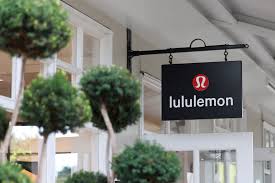
Introduction
Lululemon Athletica, the renowned Canadian activewear brand, recently made headlines by filing a lawsuit against Costco Wholesale Corporation. The lawsuit, initiated in October 2023, centers around claims of trademark infringement related to Lululemon’s popular yoga pants. This legal dispute highlights important issues of intellectual property within the competitive retail landscape and raises questions about brand management and fair competition.
Details of the Lawsuit
The legal proceedings began when Lululemon accused Costco of selling counterfeit products that bore striking similarities to their patented yoga pants. According to the complaint, Costco was offering items described as ‘Lululemon-inspired’ that closely mirrored the brand’s trademark design, which prompted Lululemon to take decisive action. The grievance was filed in the U.S. District Court for the Central District of California, where Lululemon is seeking both damages and an injunction to prevent further sales of the disputed items. The company claims that such practices undermine its brand integrity and dilute the value of its trademark.
Relevance in the Retail Industry
This lawsuit is particularly significant in the context of the growing dominance of discount retailers like Costco, which have been expanding their private label offerings to challenge established brands. Lululemon, which has invested heavily in creating a premium image through quality and brand loyalty, faces threats from retailers that provide similar products at lower price points. The outcome of this lawsuit could have far-reaching implications for how trademark laws are enforced and interpreted in relation to retail practices. Additionally, many foresee potential ripple effects across the industry, with increased scrutiny on product authenticity and branding as more retailers expand into the athleisure market.
Conclusion
The Lululemon versus Costco case is set to be a pivotal moment in the ongoing conversation about intellectual property rights and competitive practices within retail. As the litigation unfolds, it is likely that the case will draw attention from businesses and consumers alike, making it a landmark issue for how brands protect their creations in an increasingly crowded marketplace. Lululemon’s stance emphasizes the importance of safeguarding brand identity, raising awareness for other companies who might also find themselves grappling with similar challenges in the future. Observers will be keen to see how this case influences not just Lululemon’s future, but the larger landscape of retail competition.



